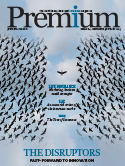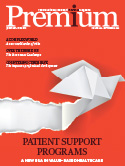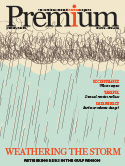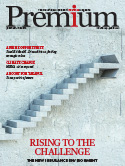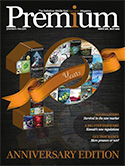Technology, the way to go
The 6th Annual Health Insurance Conference by the Emirates Insurance Association held under the patronage of the Insurance Authority, stressed on the importance of technology in insurance to be predictive, preventive and personalised.
Speaking about the consolidation in the market, Merras Quna, senior consultant at the Insurance Authority said that medical insurance represented 44 percent of the total premium written in the UAE, according to 2018 figures, with a loss ratio of 80 percent. He said the medical portfolio would be larger once the northern emirates opened themselves to compulsory insurance schemes.
“Currently there is fierce competition with reflections on pricing,” he said. Speaking about the challenges hampering the growth of the insurance sector, he said that digitalisation was the answer in terms of underwriting, claims processing and claims management. He endorsed the usage of wearables, Internet of Things, and introduced the IA sandbox for insuretech providers and insurers to experiment with innovative technology.
Ali Lutfi, head of payer regulation, Dubai Health Authority gave an overview of the health insurance sector in Dubai. Pointing out that the Dubai health insurance market accounts for 48.07 percent of the health insurance market in the UAE, he said that 15 percent of lives insured were via individual policies, while 85 percent of lives were insured via group policies and 60 percent of the insured population were members of the lower salary band. “60 percent of the insured population accounts for 23 percent of the GWP, while 39 percent of the insured population accounts for 77 percent of the GWP,” he remarked.
Lina Jichi, manager of health financing advisory department, spoke at length about many cost-efficient initiatives that insurers could use to reduce claim cost.
Another important session during the two-day event focused on fraud, waste and overuse. Speaking about the rising healthcare costs, Jihad France, chief business development officer at Nextcare said that globally the expenditure on healthcare was growing at a CAGR of 6.7 percent. While naming contributors to this phenomenon such as ageing population, lifestyle related diseases, higher treatment costs, he said in spite of these factors, healthcare was quite low on the digitization spectrum. Commenting on the same topic, Dr. Ali Anees, chief process officer at Daman, said that data mining tools and predictive analysis were becoming more relevant in the current age.
Joe Boulos, vice chairman, NAS United Healthcare Services said that waste was a main contributor to high claims cost due to the incentives given to some doctors by providers. “Only recently do patients have readily available and reliable information to select a physician. Sometimes comfort level associated with some doctors are not communicated, but still contributes to waste. Even now, many doctors and patients have misconceptions about health insurance,” he said.
Conveying the need for adequate technology to manage, price and underwrite risk, Mazen Abouchakra, managing director and regional director of Life and Health at Gen Re, stated the need for clean data. “We cannot have predictive analytics without data,” he said. He also observed that the interests between the various stakeholders were not aligned. He listed various parameters affecting design and tariff pricing.
Many other speakers at the event advocated the positives of innovative technology within the insurance business that would ensure sustainability, personalization and predictive capabilities. “The future of health is data rich, engaging, focused on wellness, influences behavioural change and is regulated,” said Ashraf Azzouni, managing director of RGA Middle East.









